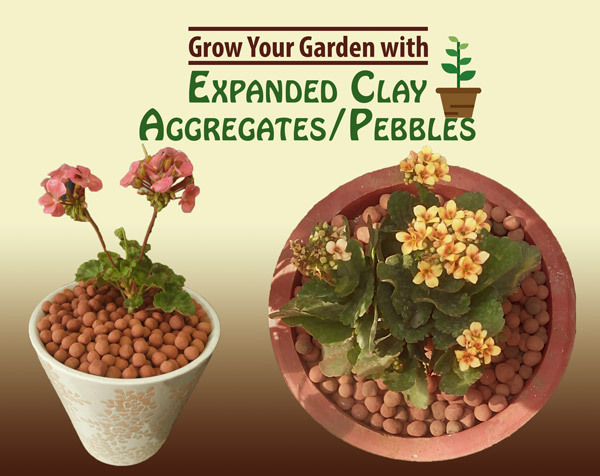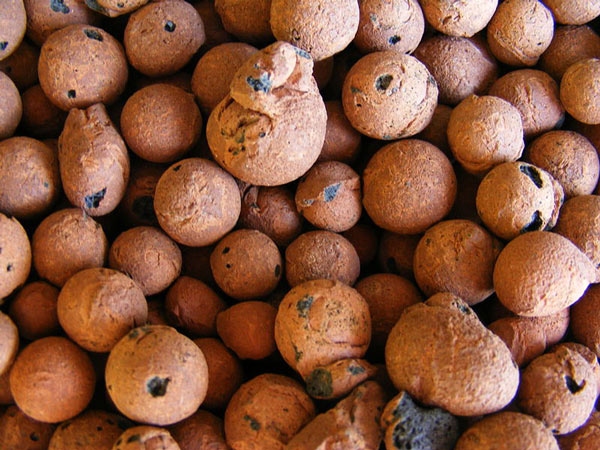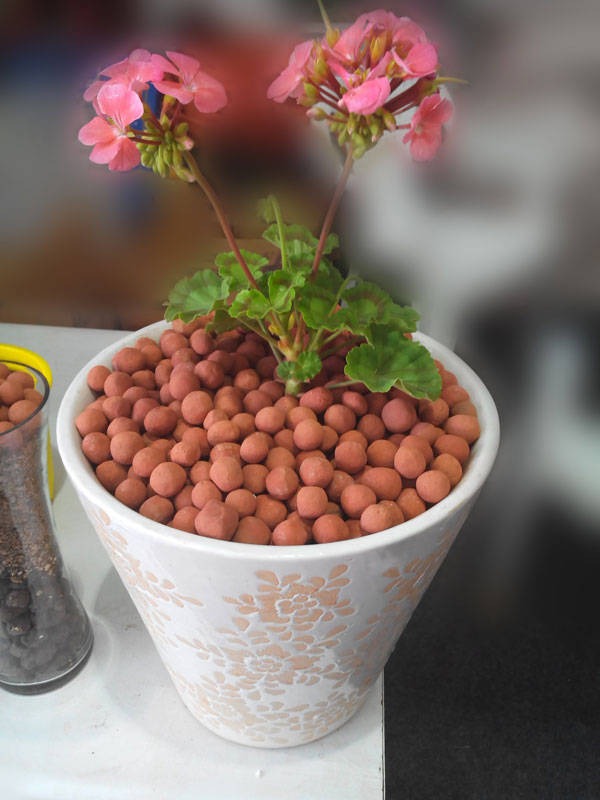Every garden owner desires to use faster and impressive techniques, to ensure the plants to attain growth levels properly. Use of ‘Expanded Clay Aggregate’ is seen to provide similar type of benefits to individuals around the world. Most of us have been using this wonderful product for years in our garden and the results are the proof of its efficacy. Read on to know, the specific reasons behind that why it is so popular?

Before we talk more about Expanded Clay Aggregates, let us understand about Expanded Clay Aggregates first! It is made by heating a clay (light weight aggregate). The light weight concrete was first discovered by ‘Stephen J. Hayde’ – (Who is a Father of lightweight Concrete Industry) explains that, when a clay is heated in a kiln oven to a temperature of 2228 degrees Fahrenheit (1,220 degrees Celsius), it releases gases, which creates small bubbles that makes a honeycomb-like structure inside the aggregate, making it perfect for holding oxygen as well as moisture around plant roots. It can be mixed with the soil or without soil.
Expanded Clay Aggregate are also called as Expanded Clay Pebbles or Expanded Clay Pellets. They are brown light weight aggregate with a nominal particle size of from 8 mm to 12 mm. It resembles the oddly shaped, semi-round pieces of clay-coloured balls. It simply looks like a popcorn. Expanded Clay is non-toxic, disease free, resistant to algae, chemically inert and sterile with a natural pH. It has good insulating properties over a wide range of temperatures, will not compact and is unaffected by frost.

The dense green roof uses planting mediums that have greater depth than the extensive green roof. This deeper soil system becomes light weight using Expanded Clay Aggregate and allows dense roofs to accommodate large plants and dramatic plant groupings. Watch the video of ‘Everest Fernandez’ (Has a YouTube channel name – Just4Growers) explains how these little brown balls replace soil and its irrigation strategies.
These clay pebbles are set to provide more benefits than anything else. Most of us are probably new to gardening or are trying to make a strong foothold. When a professional is asked about the same, they also understand that these aspects are critical in the present scenario to generate better gardening results. For growing plants, one needs to have adequate knowledge of drainage and other factors.
The points mentioned below will help you in understanding whether or not we should, still use clay pebbles in the gardens.
Characteristics of Expanded Clay Aggregate
Some characteristics of Expanded clay are its lightness, sound proofing by high acoustic resistance, thermal insulation by low conductivity coefficient, moisture impermeable, in compressible under permanent pressure and gravity loads, fire resistant, non-decomposition against several condition, pH of nearly 7, freezing and melting resistance, Giving movement and transportation, perfect sweet soil for plants, materials for drainage and filtration.
Benefits of Expanded Clay Aggregates / Clay Pebbles for Gardening
01. Viability of Harvesting within the Garden
Sometimes, harvesting becomes a difficult task for most of us because of sticky soil conditions and unnatural growth. It is especially hard, when it comes to the transplantation of the entire plant from one place to another. But in the case of, clay pebbles or Expanded Clay Aggregate, the physical forms of these aspects are a bit different from others.
Facing difficulties using the Expanded Clay Aggregate is undoubtedly impossible. This is because the pebbles are round and non-sticky in nature, which makes them the exact version of the solution needed for harvesting and transplantation.
02. Drainage of Water
Another problem that most of us face, while gardening involves drainage of the water that provides nourishment to the roots. With the pebbles, we can ensure that the plant receives appropriate nourishment from water. It ensures proper access to the water drainage within the small pot.
Technically, normal ways can prevent the water from getting out of the soil, stifling plant growth. On the other hand, clay pebbles can give enough room for the water to drain without damaging the chances of getting the nourishment needed.
03. Moisture & Nutrient Absorption
Apart from the above-mentioned aspects, the clay pebbles can provide benefits that we can never imagine. In one instance, they absorb the extra moisture necessary for the growth of plants. Not only water, but they also absorb nutrients from solutions that have been used for the plant growth within the soil.
04. Aesthetical look
One feature that makes the clay pebbles different is the fact, that they provide an aesthetical appearance to the pot, where they are placed. Their look is such that they would only enhance the beauty of the pot and not look out of the place. Also, they are maintaining a perfect temperature, humidity level, and drainage ensures, that the amount of effort required in taking care of them, is minimized.

05. Reuse Possibility
They helps in providing oxygen to the roots along with everything else. Moreover, we can even reuse these pebbles, just by washing them time and again. This makes the clay pebbles long-lasting. If needed, we can crush them to get smaller sized Expanded Clay Aggregate. An important factor for the gardeners is that, they are highly inexpensive.
Generally, Gardening is done by two methods:
- Conventional Method: Where natural soil is being used.
- Modern Method: Where Expanded Clay Aggregate is used either with soil or individually. Modern Method in gardening also includes: when added to soil, the Expanded Clay helps the soil retain water during periods of drought. Expandable Clay acts an in ideal root insulator when used in areas that frequently suffer freezing weather.
Conclusion
The uses of Expanded Clay Aggregate extends beyond just plantation and growth. It gives essential moisture to the plants and proper nourishment to the roots. The properties, it is equipped with ensures that your gardening efforts bear fruit and that too within permissible time limits. With its help, we can see how the process of harvesting becomes simple. Indeed, as the experts of Expanded Clay Aggregate Company also suggests, it is beneficial for all sorts of things, even including thermal insulation in India. Being lightweight in nature, we can use it for gardening without investing much money and hampering our budget.
Expanded Clay Aggregate are a great choice in growing plants for your landscape, as they are reusable, last a long time, and can be used in different hydroponic systems and different stages of plant growth. They do require a bit of effort and time to get the most out of them while protecting your mechanism but for many people it is well worth it.



